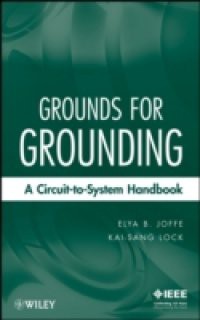The first book to cover grounding from the circuit to system and across the entire spectrum of applications Grounds for Grounding provides a complete and thorough approach to the subject of designing electrical and electronic circuits and systems, blending theory and practice to demonstrate how a few basic rules can be applied across a broad range of applications. The authors begin with the basic concepts of Electromagnetic Compatibility (EMC) that are essential for understanding grounding theory and its applications, such as "ground loop," which is one of the most misunderstood concepts in EMC. Next, they provide an introduction to grounding, including safety grounding, grounding for control of electromagnetic interference, and grounding-related case studies. Subsequent chapter coverage includes: Fundamentals of grounding design Bonding principles Grounding for power distribution and lightning protection systems Grounding in wiring circuits and cable shields Grounding of EMI terminal protection devices Grounding on printed circuit boards Integrated facility and platform grounding system Practical case studies are integrated throughout the book to aid in readers' comprehension and each chapter concludes with a useful bibliography. Grounds for Grounding is an indispensable resource for electrical and electronic engineers who work with the design of circuits, systems, and facilities.

